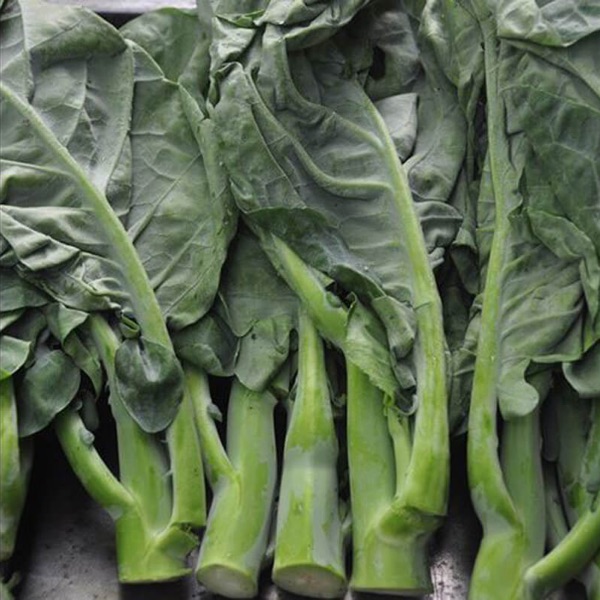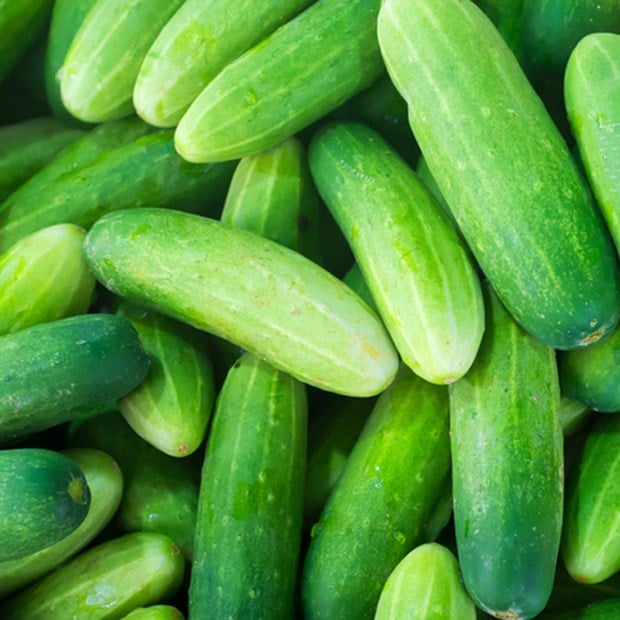Some vegetables and fruits are considered high-risk when it comes to pesticide residues, especially when farming practices and quality control are not strictly enforced. The following are some produce items you should be cautious about:
Spinach: Every year, the Environmental Working Group (EWG) in the US releases a list of the “Dirty Dozen” foods with the highest pesticide loads. Spinach made it onto this list in 2024, with samples showing high levels of pesticide residues, including permethrin, which can be harmful to the nervous system.
Kale, Cabbage, and Collard Greens: These vegetables have been found to contain residues of the herbicide DCPA (Dacthal), which the US Environmental Protection Agency has classified as a potential human carcinogen.

Kale, cabbage, and collard greens are found to have residues of the herbicide DCPA (Dacthal), classified as a potential human carcinogen by the US Environmental Protection Agency.
Bell Peppers and Chili Peppers: Both types of peppers have been shown to contain varying levels of pesticide residues, including acephate and chlorpyrifos, which are organophosphate compounds that can affect the nervous system.
Potatoes: According to Food Revolution, potatoes can still contain pesticide residues even after washing and peeling. While these steps can minimize the risk, they don’t eliminate it completely.
Green Beans: Recent analyses have detected pesticide residues on green beans, including methamidophos, a pesticide that has been banned in the US for over a decade due to health concerns.
Cucumbers: Studies indicate that cucumbers can retain pesticide residues even after being washed. Peeling can help reduce chemical levels, but some pesticides can penetrate deeper into the cucumber.

Studies have shown that cucumbers can retain pesticide residues even after being washed.
Health Impact: Long-term exposure to pesticide residues has been linked to various health issues, according to the Guardian. These include endocrine disruption, neurological problems, and an increased risk of cancer. Children and pregnant women are particularly vulnerable.
Mitigation Measures:
1. Choose Organic: Organic farming practices restrict the use of synthetic pesticides, reducing residue levels in produce. However, some organic foods can still be affected by environmental contamination.
2. Thorough Washing and Peeling: While washing with water can remove some surface pesticide residues, it doesn’t guarantee complete removal, especially for chemicals that have penetrated the produce. Using a brush and peeling can help minimize the risk of contamination.
While the benefits of consuming vegetables and fruits are well-established, it is crucial to be aware of the potential risks associated with pesticide residues. By opting for organic produce when possible, thoroughly washing and peeling, and staying informed through reliable sources, you can effectively minimize your exposure to these chemicals.
Eat These 3 Veggies This Spring to Cleanse and Detox Your Liver, For a Good Night’s Sleep.
“In Eastern traditional medicine, there’s a saying that ‘all ailments begin with the liver.’ This ancient wisdom highlights the intimate connection between our liver function and overall health. Particularly during spring, when liver heat tends to rise, it can disrupt our sleep quality and serve as a reminder of the delicate balance within our bodies.”
10 Superfoods to Prevent Hair Loss and Stimulate Growth: Secrets of Asian Beauty Icons
Introducing a simple way to boost your hair’s health and vitality – from the inside out. Incorporating these foods into your diet is an easy and effective way to nourish your locks, prevent hair loss, and stimulate hair growth. With a variety of nutrient-rich options, you can give your hair the love and care it deserves.
5 Bedtime Snacks to Detox and Nourish Your Liver
“After a long and tiring day at work, it’s easy to reach for convenient, unhealthy food options for dinner. However, did you know that your evening meal choices could impact your liver health? It’s true; your liver works hard to process and filter everything you consume. So, it’s crucial to make conscious dinner decisions to support and nurture your liver’s well-being. Imagine having a personal nutritionist guide you towards delicious, liver-friendly dinner options. With careful planning and the right ingredients, you can nourish your body and give your liver the love it deserves.”



































